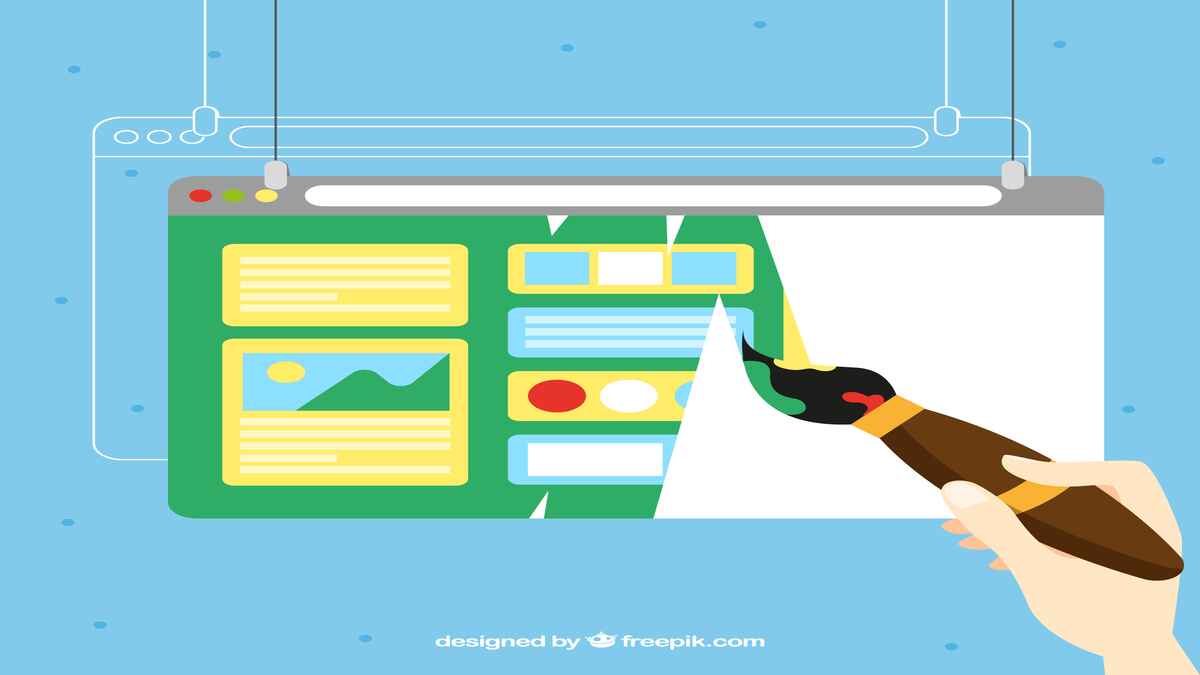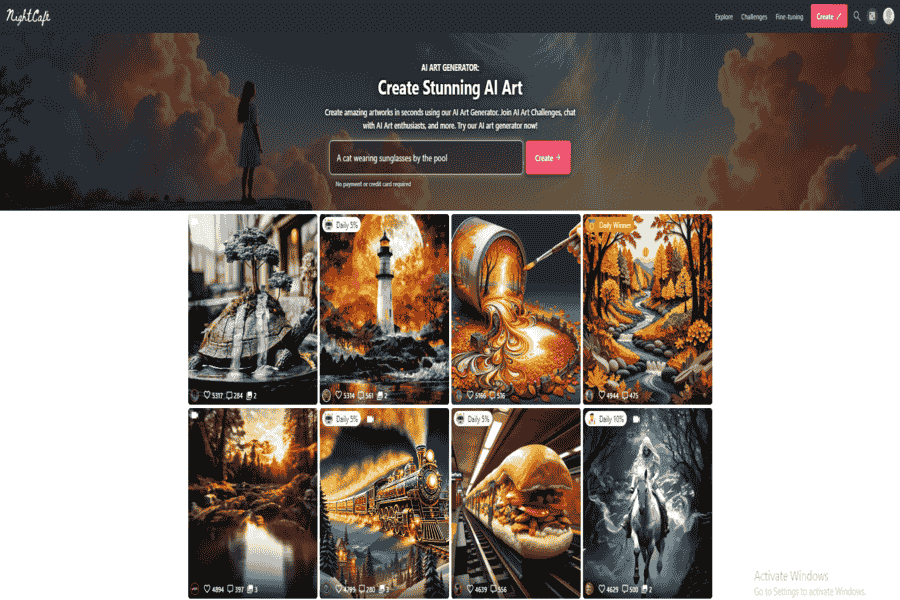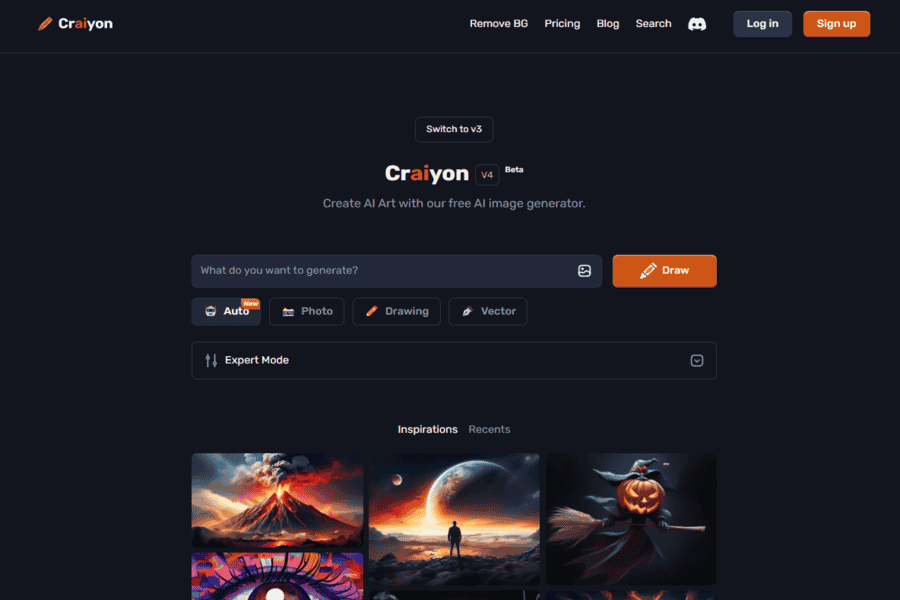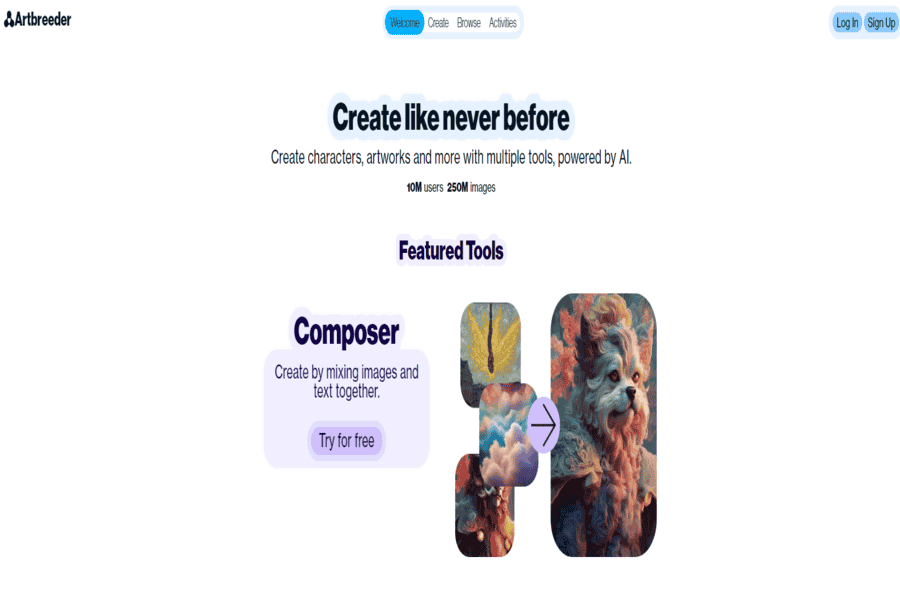Top Best AI Image Generators in 2025
December 6, 2024


AI Image Generators are revolutionizing the creative process by allowing users to generate unique and imaginative images from simple text descriptions. These powerful tools leverage advanced machine learning algorithms to understand and interpret user prompts, translating them into stunning visuals. From photorealistic portraits to abstract art, AI image generators offer diverse styles and possibilities, empowering artists, designers, and content creators to explore new creative avenues and bring their imaginations to life. By effectively utilizing AI art generators, artists can explore new creative avenues, experiment with different styles, and push the boundaries of their artistic expression.
Image generators are digital tools that create images based on specific inputs, such as text descriptions or sketches. Traditional image generators often rely on predefined templates or stock images. However, AI-powered image generators take this concept to a new level, leveraging advanced algorithms to generate original and creative visuals.
AI image generators employ a variety of techniques, including:
GANs consist of two neural networks: a generator and a discriminator. The generator creates Images while the discriminator evaluates their realism. Through a competitive process, the generator learns to produce increasingly realistic images that can fool the discriminator.
VAEs encode images into a latent space, a compressed representation of the image’s features. By manipulating this latent space, new images can be generated.
Diffusion models start with noise and gradually refine it into a coherent image through denoising.
AI image generators have revolutionized the way we create and consume visual content. Here are some of the key benefits they offer:
AI tools can help spark new ideas and inspire creative thinking by generating unique and unexpected visual concepts.
AI can provide fresh perspectives and alternative approaches when artists face creative roadblocks.
AI can automate repetitive tasks such as background removal, image resizing, and style transfer, saving time and effort.
AI-powered tools can quickly generate multiple image variations, allowing rapid prototyping and iteration.
By automating image creation processes, businesses can reduce the need to hire professional designers or purchase expensive stock photos.
AI can help scale content production, enabling businesses to generate a large volume of high-quality images efficiently.
AI image generators empower individuals with limited artistic skills to create visually appealing content.
These tools help bridge the gap between professional designers and amateur creators, allowing everyone to express their creativity.

A powerful AI image generator that produces high-quality images from text prompts. It’s known for its artistic style and ability to generate unique and imaginative visuals.
Subscription-based with various plans

A versatile AI image generator that excels at generating realistic images, artistic styles, and creative concepts. It’s known for its ability to understand and respond to complex prompts.
Subscription-based with various plans

An open-source AI image generator that allows for customizing and fine-tuning generated images. It’s popular among developers and artists who want to experiment with AI art.
Free, but requires powerful hardware to run

An AI image generator integrated into Adobe’s Creative Cloud suite. It seamlessly integrates with other Adobe tools and focuses on professional-grade image generation.
Included in Adobe Creative Cloud subscriptions

A user-friendly AI image generator that offers a variety of styles and effects. It’s popular among artists and hobbyists who want to experiment with AI art.
Subscription-based with various plans

A mobile app that allows users to create AI-generated art directly from their phones. It’s known for its user-friendly interface and wide range of artistic styles.
Free with in-app purchases

A free and open-source AI image generator that can produce a wide range of realistic and abstract images. It’s a great option for those who want to experiment with AI art without spending money.
Free

A powerful AI platform that offers a variety of tools for image generation, video editing, and more. It’s a popular choice among creative professionals and researchers.
Subscription-based with various plans

A unique AI image generator that allows users to breed images to create new and original artworks. It’s a great tool for exploring creative possibilities and generating unique visual styles.
Subscription-based with various plans
An open-source AI image generator that offers a wide range of styles and techniques. It’s a popular choice among developers and artists who want to experiment with AI art.
Free
As AI image generators continue to advance, they bring forth a host of ethical, legal, and technical challenges that must be addressed:
One of the most pressing concerns is the potential for AI-generated images to create deepfakes, highly realistic but fabricated media that can deceive and manipulate. This can have serious implications for individuals, organizations, and society.
AI models are trained on vast datasets, which can inadvertently introduce biases in the data. This can lead to the generation of images that perpetuate stereotypes, discrimination, and harmful stereotypes.
Determining the ownership of AI-generated content can be complex. If an AI system is trained on copyrighted material, who owns the rights to the generated images?
The boundaries of fair use and creative commons licensing become blurred when AI is involved in the creative process.
Ensuring the quality and consistency of AI-generated images is a significant challenge. Factors such as the quality of training data, the complexity of the model, and the specific prompt can influence the output.
AI models may struggle with generating images that accurately depict specific details, emotions, or concepts, particularly when dealing with complex prompts or niche subjects.
To mitigate these challenges, researchers, developers, and policymakers must work together to:
Establish clear ethical guidelines for developing and using AI image generators, including responsible AI and data privacy principles.
Develop techniques to identify AI-generated content and distinguish it from genuine human-created content.
Encourage transparency in developing and deploying AI image generators, including disclosing the training data and algorithms used.
Continue to invest in research to improve AI image generation’s quality, accuracy, and ethical implications.
Work with legal experts to develop frameworks for addressing copyright and intellectual property issues related to AI-generated content.
The rapid advancement of AI technology is poised to revolutionize the field of image generation. Here are some of the most promising future trends:
AI tools can generate images in real-time, enabling interactive experiences such as virtual and augmented reality.
This technology will empower content creators to generate dynamic visuals on the fly, adapting to user input and real-world events.
AI models will generate virtually indistinguishable images from real-world photographs, pushing the boundaries of visual realism.
AI algorithms can capture intricate details, textures, and lighting conditions, creating highly immersive visual experiences.
Users can customize AI-generated images to their preferences, including artistic style, color palette, and subject matter.
AI tools will learn from user feedback and preferences to generate increasingly personalized and satisfying results.
Developers will prioritize addressing biases in AI models to ensure fair and equitable image generation.
Efforts will be made to make AI algorithms more transparent, allowing users to understand how images are generated and make informed decisions.
AI image generators will integrate with other AI technologies, such as natural language processing and speech recognition, to create more comprehensive and interactive experiences.
AI will be embedded in design tools to automate tasks, generate creative ideas, and assist in design.
AI image generators are rapidly transforming the landscape of digital art and design. By understanding their capabilities, limitations, and ethical implications, we can harness their power to create innovative and visually stunning content. As technology advances, we can expect even more groundbreaking developments in this exciting field.
